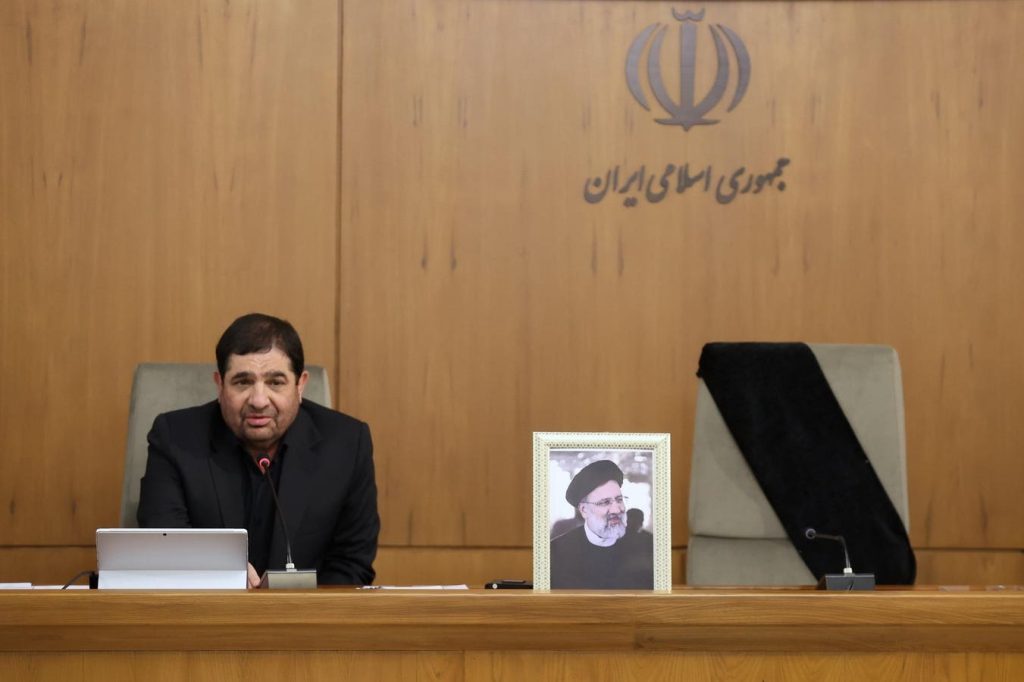Iran is currently facing uncertainty following the death of President Ebrahim Raisi and other senior government officials in a helicopter crash. The crash occurred in bad weather near Varzaqan, Iran, after a visit to Azerbaijan. First Vice President Mohammad Mokhber has been appointed as acting President to manage an election that must take place within 50 days. Despite speculation of a potential change in direction, the government council has assured that the administration will continue to operate without disruption.
Acting President Mohammad Mokhber has a hardline background similar to Raisi’s, suggesting a continuation of Iran’s current policies. The support for proxy groups like Hezbollah, Yemen’s Houthi rebels, and Hamas is expected to remain steady. The power brokers in Iran, including the Supreme Leader and Revolutionary Guard Corps, hold more influence than the President, indicating little change in the country’s geopolitical stance. Sanctions imposed by the U.S., U.K., and the European Union on Iran are unlikely to shift, especially with the E.U. expanding sanctions over Iran’s military support of Russia.
Iran’s oil exports are expected to continue under the shadow of international sanctions. The country produces over 3 million barrels per day, making up about 3% of the world’s production. With China as a leading importer of Iranian crude, export volumes have seen a significant increase in recent months. Iran’s Petroleum Minister is not expected to make major changes at the next OPEC meeting, as the country is already exempt from production cuts. The status quo is likely to be maintained in terms of energy markets and Middle Eastern geopolitics.
The likelihood of another token election to appoint a President aligned with the Supreme Leader points to the hardliners retaining power in Iran. The tragic event of Raisi’s death is not expected to loosen the grip of the hardliners on the country’s politics. This suggests that the energy markets will remain stable and no significant shifts in Middle Eastern geopolitics are anticipated. Overall, the future of Iran appears to be on a path of continuity rather than change following the helicopter crash that claimed the lives of top government officials.


